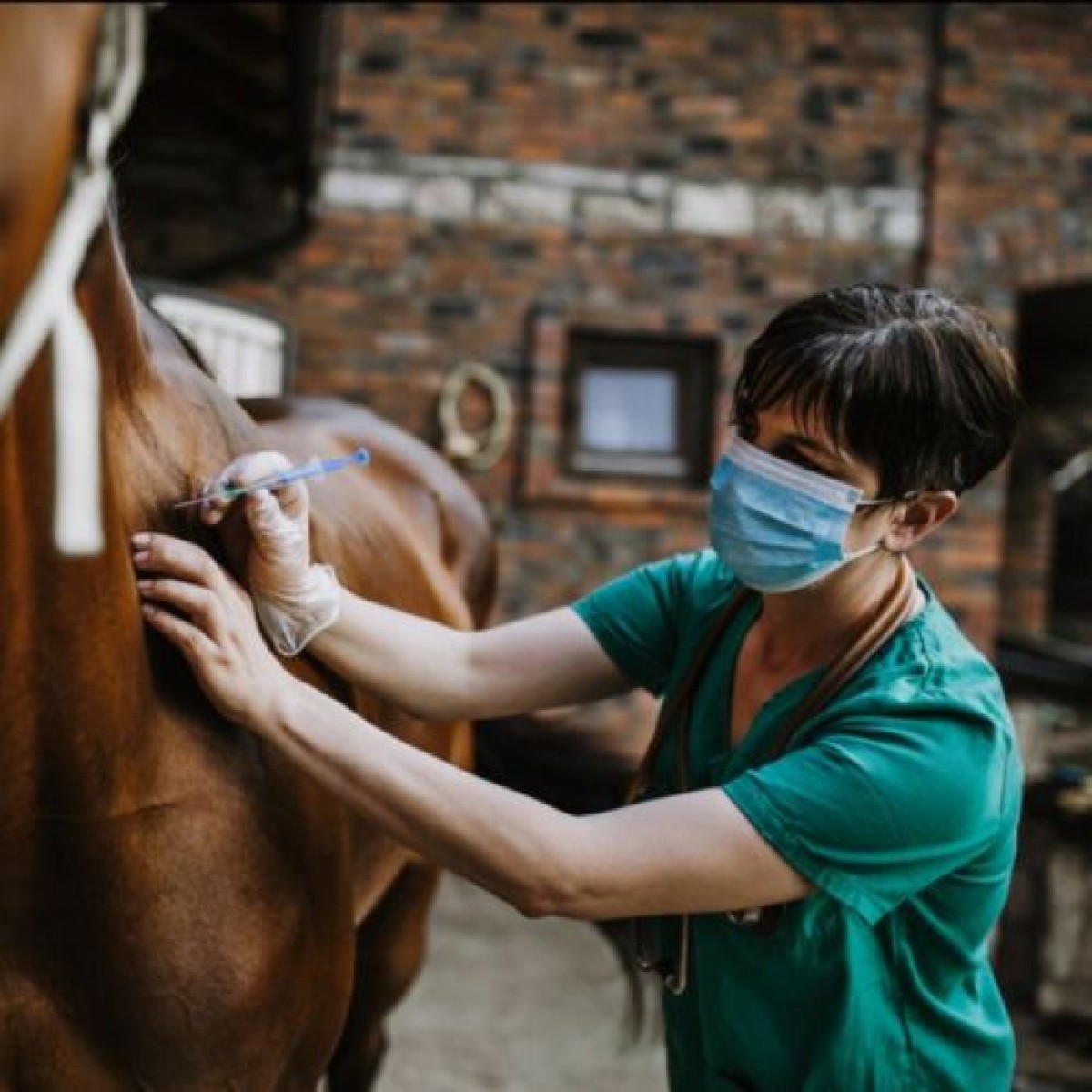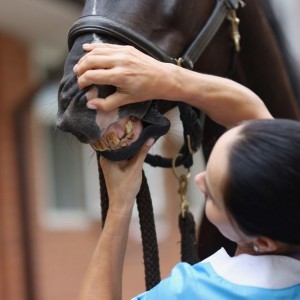The future of equine veterinary medicine
by Jenny Alonge
Equine veterinarians are an endangered species. According to American Association of Equine Practitioners (AAEP) data, about 1.3% of new veterinary graduates enter equine practice directly each year, and 4.5% pursue an equine internship position. However, within five years, 50% of these veterinarians transition to small animal practice or leave veterinary medicine altogether. Many areas do not have enough equine practitioners to care for horses and other equids, and this issue will intensify if the problem is not addressed. AAEP president Dr. Emma Reid says, “In order to transform equine practice, we must address the pain points which are driving exceptional horse doctors away. Without change, future veterinary care for our nation’s horses will be greatly jeopardized.” The AAEP has formed the Commission on Equine Veterinary Sustainability, led by member volunteers, to establish strategies to recruit and retain more veterinarians to equine practice. The commission is focusing on five key areas—compensation, effective emergency coverage strategies, veterinary practice culture, internships, and support for equine veterinary students’ growth and development.
What is the problem?
The problem cannot be remedied without first being identified—so what is the reason for this exodus from the equine veterinary profession? Close inspection reveals a multi-pronged problem that involves the following factors:
- Work-life balance — Most equine practitioners work non-stop for most of their waking hours, and frequently for many of the hours when they should be sleeping. New veterinarians entering the field used to expect and accept this, but more people now recognize the importance of work-life balance. When new veterinarians can choose companion animal medicine that doesn’t require long work hours or being on call, they find the equine veterinary lifestyle less appealing, because they want to enjoy life outside work and spend time with family and friends.
- Finances — The average starting salary for an equine veterinarian in the United States is $75,000 to $85,000—compare that with the $105,637 to $124,686 average starting salary for a companion animal veterinarian. While most equine veterinarians don’t enter the field for the money, this massive salary difference can influence their choice of direction. Also, consider that many individuals interested in equine medicine are horse owners who need money to spend on their horse, as well as time to ride their horse—which returns to the work-life balance issue.
- Injury — Horses are large, intimidating animals who can cause serious injuries. A United Kingdom study that questioned 620 practicing equine veterinarians revealed that 495 veterinarians had sustained 2,292 injuries, including bruises, fractures, and lacerations, with injuries typically occurring about every three years and seven months. With statistics like these, that most veterinary graduates choose small animal medicine is no surprise.
What can help?
So, how do we correct this problem to ensure the horses of the world continue to have veterinary care? This is not an easy fix, but methods that may help include:
- Fostering interest — Programs to educate junior and high school students about horses will help drive interest and make them more comfortable at handling large animals.
- Providing incentives — Many veterinary schools are offering scholarships for students interested in equine or large animal medicine. For instance, a North Carolina couple who recently established the Banixx Horse and Pet Care Graduate Award to provide merit- and need-based scholarships for students pursuing a Doctor of Veterinary Medicine degree at North Carolina State College of Veterinary Medicine stipulated that preference be given to third- and fourth-year students who demonstrate an interest in large animal medicine.
- Collaborating — Small practices can collaborate with other practices to share on-call duties, help reduce stress, and provide time off for overworked practitioners.
- Improving practice culture — People in the equine industry do not appreciate change. This is especially true for older equine veterinarians, who think that because they had to handle the long nights and never-ending times on-call, the new hires should also. However, this mindset must change if equine practices want to retain new recruits.
- Being adaptable — Every employee values different incentives. Equine veterinary practices must negotiate with their employees to determine their most desirable schedule and remuneration package.
- Charging accurately — Many equine veterinarians set their prices based on how much the product or service costs them, which is not an effective strategy. Clients need to understand the value of the products and services they receive, and veterinarians need to establish their pricing accordingly. When charges are set appropriately, veterinary salaries can be raised, and retention rates will improve.
- Practicing restraint — Cell phones are excellent and convenient for veterinarians needing to communicate with their clients, but the devices also allow clients to access their veterinarian whenever they want. Equine veterinarians frequently provide their cell phone number to their clients, which is not always the best idea, especially if the client doesn’t show respect for the veterinarian.
How can clients contribute?
Horse owners can be demanding, and a disrespectful horse owner can seriously compromise a veterinarian’s work experience. Tips for horse owners include:
- Contact your veterinarian after normal business hours only when you have a true veterinary emergency.
- Readily accept the veterinarian on call if they are not your usual veterinarian.
- Use the same veterinary practice for emergencies and your routine work.
- Welcome and encourage new veterinarians who come to treat your horse.
- Whenever possible, schedule group calls to make farm visits more efficient.
- Catch your horse and have them ready for your veterinarian when they arrive.
- Teach your horse good ground manners to help prevent injuries during veterinary visits.
- Pay for services promptly.
- Show appreciation for your veterinarian.
The equine industry is facing a crisis as equine veterinarian numbers dwindle, but aggressive action can help transform the profession to attract practitioners, so that horses don’t have to go without veterinary care.
About the author
Jenny Alonge received her Doctor of Veterinary Medicine degree from Mississippi State University in 2002. She then completed an internship in equine medicine and surgery at Louisiana State University. After her internship, she joined an equine ambulatory service in northern Virginia where she practiced for almost 17 years. Alonge later decided to make a career change in favor of more creative pursuits and accepted a job as a veterinary copywriter for Rumpus Writing and Editing in April 2021. She adopted two unruly kittens, Olive and Pops, in February 2022.














List
Add
Please enter a comment